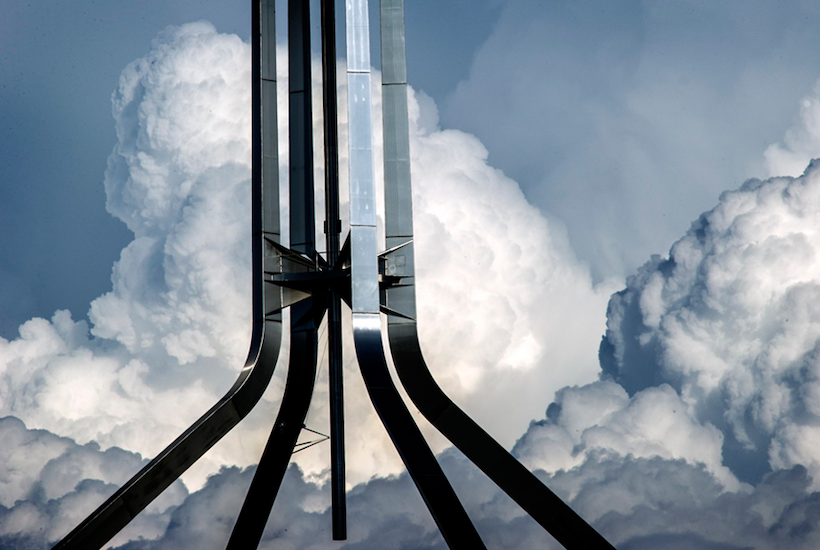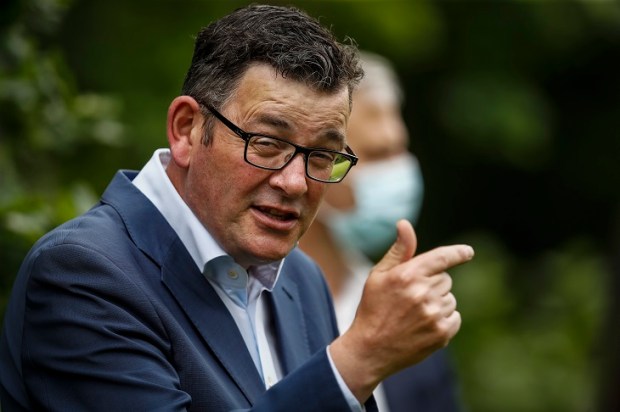No one who was in Parliament House on the morning of October 3, 1997, will forget when they heard a member of the Senate had attempted suicide.
I shan’t name him. He left politics many moons ago and has built a new career.
Who I will talk about, however, is Tasmanian Brian Harradine.
By then, Harradine had a been a member of the Senate for more than 20 years — a very independent senator indeed.
Born at the foot of the Flinders Ranges in South Australia, he had headed to Tasmania and prospered as an official in the right of the union movement. In 1968, however, he was prohibited from taking up a position on the national executive of the ALP.
Gough Whitlam, a supporter, was so outraged he resigned as federal parliamentary leader and sought a fresh mandate from the caucus. He was returned, only just, but to no avail.
Harradine had been accused of links with the DLP. In 1975, he was formally expelled from the Labor Party, this time because of allegations of association with the NCC.
He contested a Senate seat in Tasmania in that year’s election and easily won, holding it for 30 years and becoming not only Father of the Senate but the longest-serving independent in the history of our federation.
Harradine was a thorn in the side of both the left and right. When the Eros Foundation’s Robbie Swan gave evidence in drag before a senate committee examining pornography as “Caroline Cumming-Sweetly”, Harradine wanted the book thrown at him.
Not long after he joined bare-breasted Aboriginal women dancing on the parliamentary lawns, sharing their joy at the passage of the Wik legislation.
He was a man of principle and a man of conscience.
And that morning in 1997, Harradine told the media of “a sense of evil” hanging over Parliament House.
Today, it is a sense of madness.
Bellowing banalities non-stop into the mindless void of Twitter can see you recognised as an AM, as Jane Caro proved last year.
That is what passes for rational debate in 2020. This is how debased our political culture has become.
In 1997, there were claims of rorting, just as there are today.
Yesterday three brave firefighters died at the controls of a Hercules water bomber.
On Monday the national capital was battered by hailstones. Yesterday, it was seared by flames.
God only knows how many humans and beasts, how much of the beauty of this land, has already been destroyed or suffered in some way since spring. We, as a nation, have been traumatised.
On October 3, 1997, members and senators and staffers took a deep breath. The Gallery paused. There was weeping. There were blank looks in the coffee queues and muted conversations with the cleaners and the old NCOs who, in those pre-9/11 days, made up most of the parliamentary attendants and security. The change of mood could be felt across the nation. Harradine’s words were everywhere.
Our constitution is a dry document, an act of the British Parliament. It contains nothing near as stirring as the words of the United States Declaration of Independence, nothing as unifying.
But today, whether they believe in Chifley’s light on the hill or Menzies’ forgotten people, not just our leaders but everyone who considers themselves a political player — and the media too — should be asking what they actually contribute.
They should be asking how they can do better.
John Howard was right. What unites us is greater than what divides us, but the political class sometimes tends to forget and the Twitter mob has never learned.
And if you can’t accept John Howard, then think of Abraham Lincoln’ first inaugural address and “the better angels of our nature”.
Parliament resumes in less than a fortnight.
So pause. Take stock.
Because it’s time to end the madness passing as politics.
All of us.
Illustration: aph.gov.au.
Got something to add? Join the discussion and comment below.
Got something to add? Join the discussion and comment below.
Get 10 issues for just $10
Subscribe to The Spectator Australia today for the next 10 magazine issues, plus full online access, for just $10.


























Comments
Don't miss out
Join the conversation with other Spectator Australia readers. Subscribe to leave a comment.
SUBSCRIBEAlready a subscriber? Log in